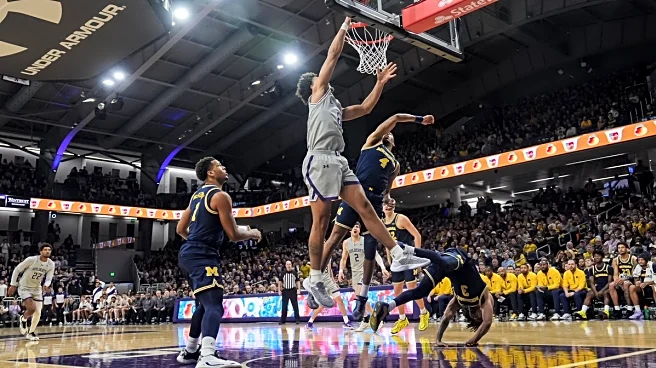What's Happening?
Rachel Maddow, a prominent anchor at MSNBC, has expressed confusion over the network's upcoming rebranding to 'MS NOW.' In an interview with Variety, Maddow admitted uncertainty about pronouncing the new name and its parent company, Versant. The rebranding, set to occur later this year, marks MSNBC's corporate split from NBC and aims to distinguish the network as a competitor. Despite mockery on social media, Maddow believes the change is timely and beneficial, emphasizing the network's new identity as 'My Source for News Opinion and the World.'
Why It's Important?
MSNBC's rebranding to MS NOW signifies a strategic shift in the network's identity and market positioning. By separating from NBC, the network aims to establish itself as a distinct entity in the competitive news landscape. This move could impact viewer perceptions and influence the network's ability to attract new audiences. The rebranding reflects broader trends in media, where companies are increasingly seeking to differentiate themselves and adapt to changing consumer preferences. As MSNBC transitions to MS NOW, it may face challenges in maintaining brand loyalty while appealing to a wider audience.
What's Next?
As the rebranding unfolds, MSNBC will likely focus on marketing efforts to promote its new identity and clarify its position in the news industry. The network may introduce programming changes or new initiatives to align with its redefined brand. Stakeholders, including advertisers and viewers, will be watching closely to see how the transition affects the network's performance and reputation. The success of the rebranding will depend on the network's ability to effectively communicate its new identity and deliver content that resonates with its audience.
Beyond the Headlines
The rebranding of MSNBC to MS NOW highlights the evolving nature of media companies as they navigate a rapidly changing landscape. This development may prompt other networks to consider similar strategies to remain competitive and relevant. The shift also raises questions about the future of traditional media and the role of branding in shaping consumer perceptions and engagement.











